Avowed's flexible combat system represents Obsidian's dedication to player choice: "It's not just marketing speak – it really is the most important thing to us"
Preview | Exploring Avowed's flexible combat system with Obsidian Entertainment
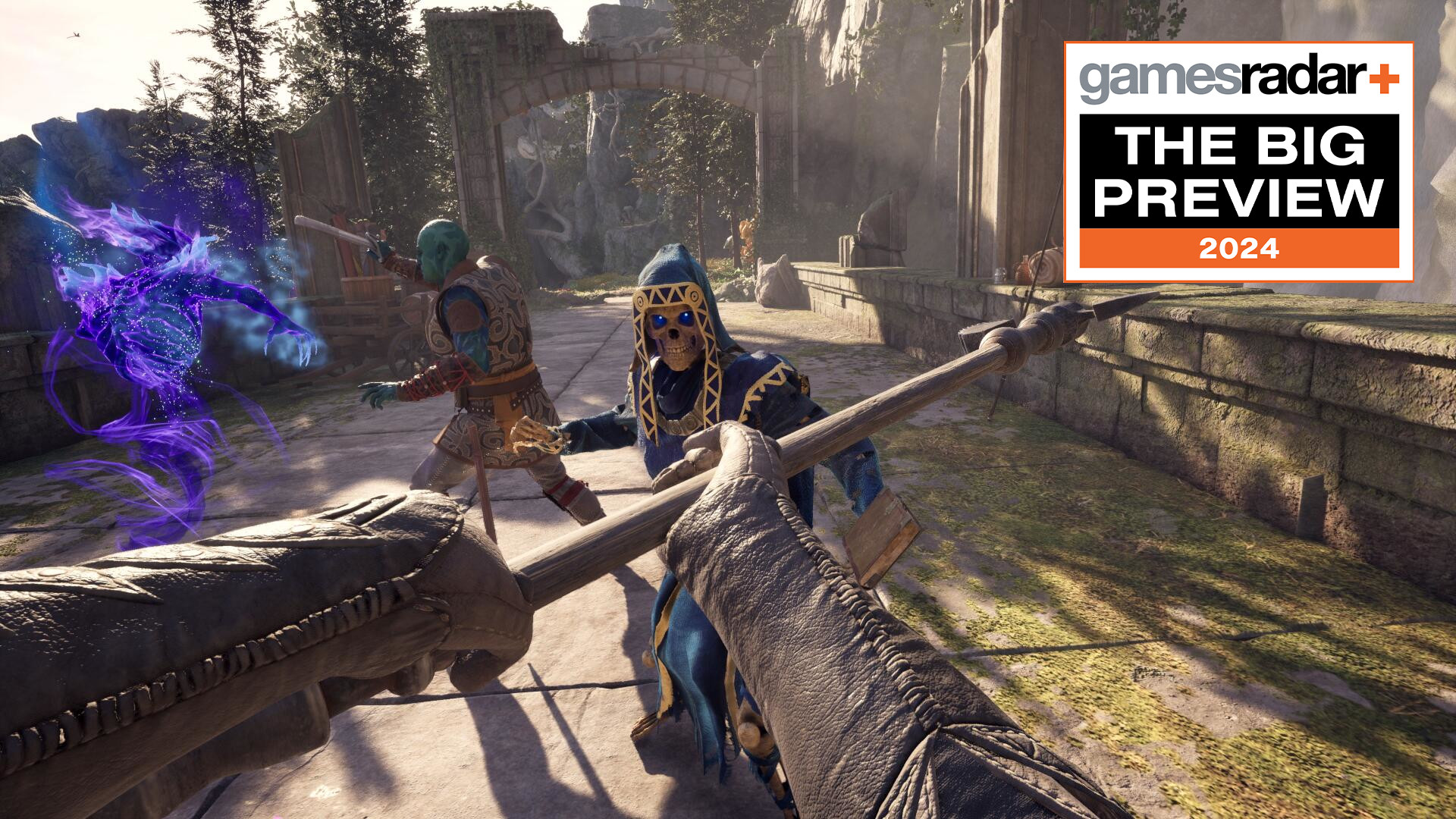
One of the biggest choices to make in Avowed is deciding your preferred fighting style. It's no small thing considering how many options are available. Rather than lock you into a specific class build which has become a mainstay norm in RPGs over the years, Obsidian's upcoming adventure gives you free reign to pick from a myriad of different dual-weapon loadouts, which can be swapped in and out at any point by either changing between equipped slots or opening up your inventory. There are a number of combinations to experiment with in the fantastical Living Lands setting, ranging from swords and shields to guns, bows, and even magical spells.

This month, we're diving into the highly anticipated upcoming Obsidian game. To find our coverage, visit the Avowed Big Preview hub.
I spent a lot of my hands-on time with Avowed trying to determine what weapons clicked with me, and the combat system was a major highlight of the experience. Ultimately I found my groove with two distinct loadouts: walloping foes with an ax in one hand while I shot fire and ice spells from a grimoire in the other became my first go-to mix, but I also swapped between a bow for stealthy ranged attacks and a greatsword for heavy, close quarters hits. After playing the demo and speaking with the Avowed team at their studio in Irvine, California, it became increasingly apparent that the flexibility and variety in combat captures what Obsidian's overarching approach RPGs is all about – which narrative designer Kate Dollarhyde passionately highlights to me when we sit down for a chat.
"The ability to play your way in combat is because 'play your way' is the pillar of all Obsidian games. We try to take that into every facet of design," Dollarhyde says. "So obviously it's present in the combat, and it's present in the narrative too, and the conversation options, and I think that is where Avowed fits into the broader world or universe of Obsidian games. We really have the same ethos for all of our RPG titles. It's not just marketing speak. It really is the most important thing to us."
"It makes them fun to play. It makes them fun to design," Dollarhyde adds. "When you're sitting there and you're trying to anticipate, what is the player going to want to do here? What is the weirdest thing they're going to want to do, the meanest thing, the most heroic thing they want to do? And try to create those experiences for them? Genuinely, it's very fun."
Mix and match
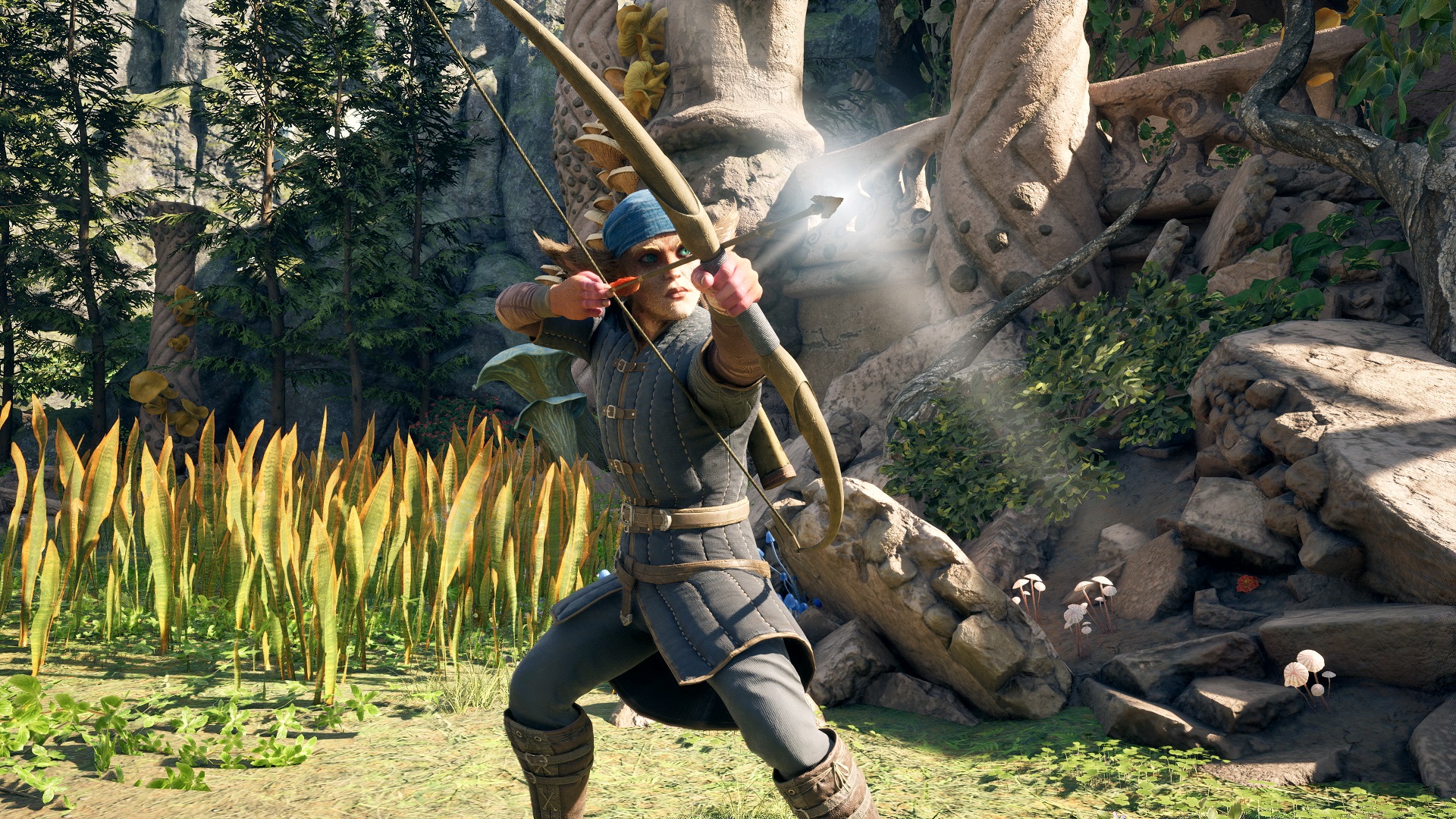
It's through speaking to the Obsidian team that I start thinking about combat combinations I hadn't even considered. Every developer I speak to has a different preferred loadout they opt for, which speaks again to the variety on offer. Game director Carrie Patel, for example, likes to play with either dual pistols or a pistol and ax. Production director Ryan Warden, on the other hand, enjoys taking on enemies with a sword and grimoire, while VFX lead Ash Kumar leans towards duel daggers for their speed. One I can't wait to try out for myself is the unique combination gameplay director Gabe Paramo chooses: rather than a traditional sword and shield, Paramo instead uses a pistol and shield for a ranged, defensive approach because it's a pairing "you don't really see".
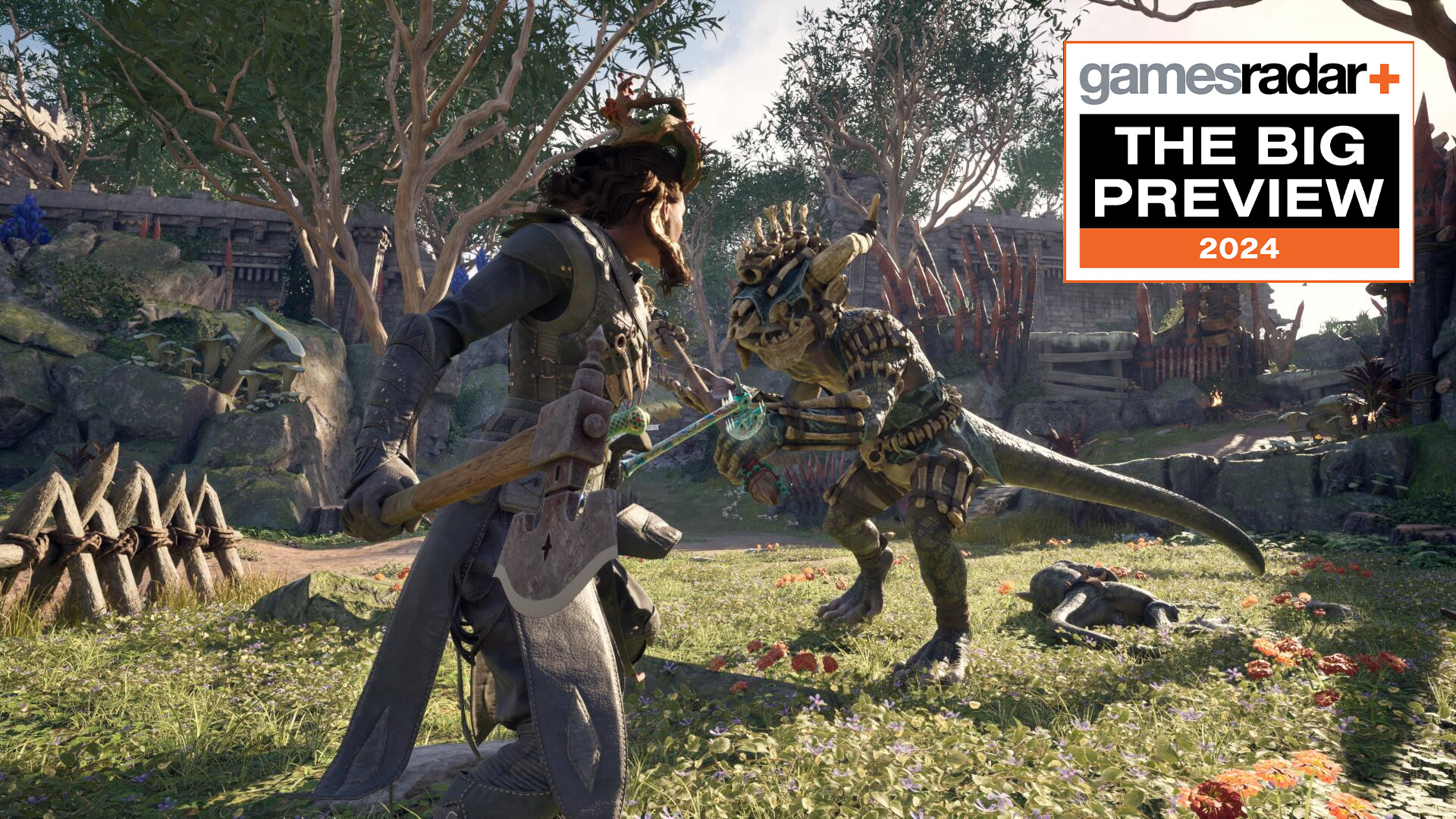
As Paramo explains, this approach to flexibility not only aims to deliver the freedom to let you "play your way", but it also feeds into one of the key aspects that sits at the heart of the experience of Avowed – choice and consequence. From the way we can interact with the world and those around us, to the decisions we make when it comes to how we fight foes and approach each battle, every choice we make should have some kind of repercussion.
"One of our mantras [at Obsidian] is 'choice and consequence'," Paramo tells me. "And I think from every choice that we make [in designing the combat], whether it's a rule that we did end up adding on a weapon – like some weapons don't allow you to block, some weapons don't allow you to parry – but essentially, you can make that choice [with your loadout], but it's going to come with some consequences. This weapon can reload slowly, so you're going to not have as much damage output as quickly as possible, but you can also switch to this other weapon that's going to give you more damage per second".
Weekly digests, tales from the communities you love, and more
"And again, with all the different… I've been calling them slots. So, your primary hand's a slot, generically, your off-hand's a slot, your companion, your throwable slot [for explosives], all these systems are things that the player can [choose] how they use it based on the play style that they want to go with," Paramo adds. "So that route of just letting the player build that player fantasy or play style that they want is kind of core to Obsidian, it's how we like players to engage with our games."
Flexibility and freedom
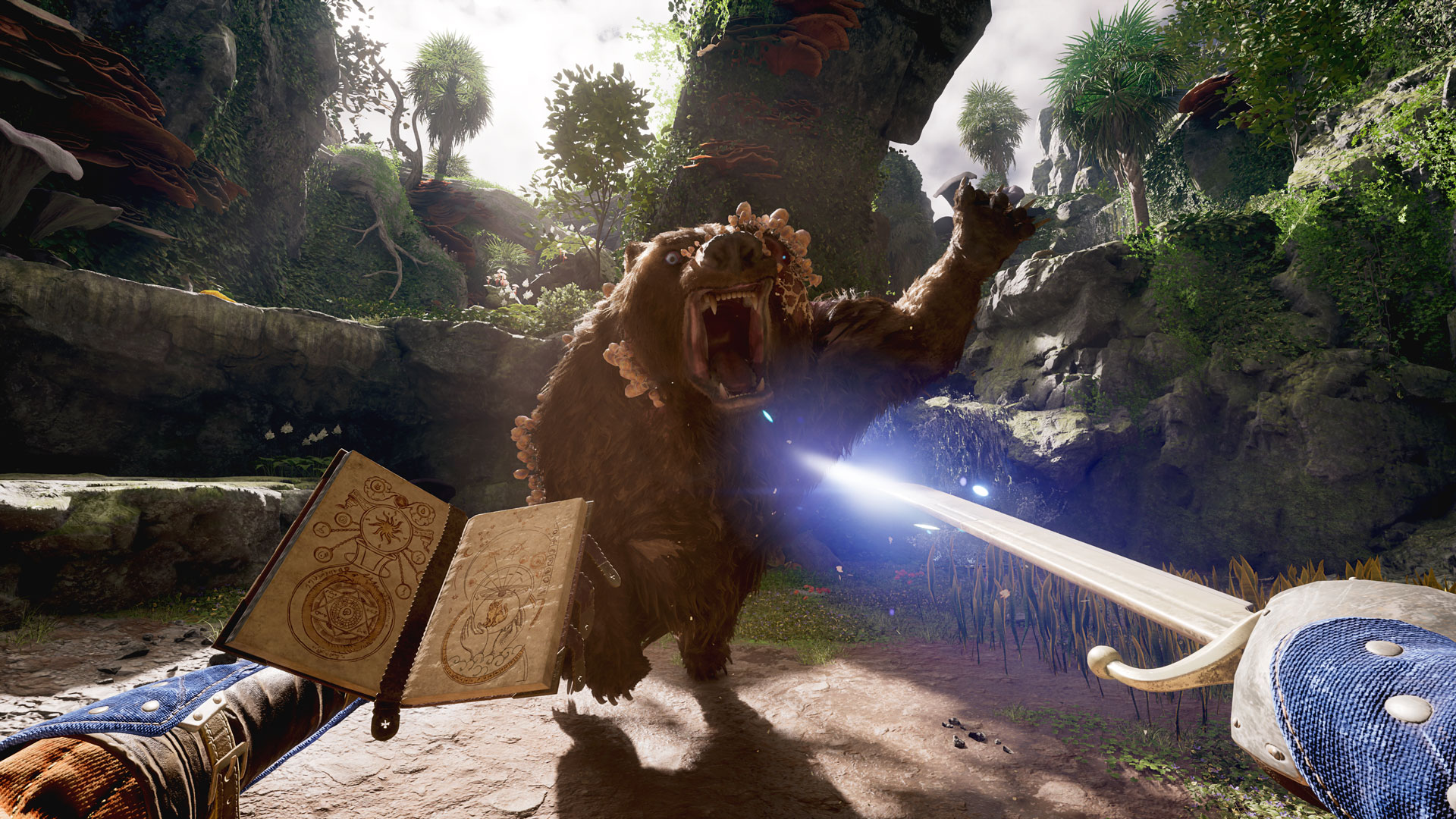
Outside of the variety of different weapons, there's also a skill tree that you can tailor to your liking and respec at any stage, so you're not locked into a build and you can change things up later on should you want to try out new combinations. As RPG combat systems go, Paramo believes it's the lack of restrictions on the player and the ability to "mix and match from moment to moment" that makes Avowed "stand out amongst other action RPGs".
But making a freedom-driven combat system comes with its fair share of challenges. Both Paramo and senior combat designer Max Matzenbacher speak to me in detail about the balancing act that went into ensuring each weapon feels equally good to use and also functions not just in first-person, but third-person, too. With Avowed featuring the option to change perspective from the in-game menu, I frequently swapped between the two to get a taste of combat from both perspectives during my demo. While I definitely found myself favoring first-person for its sense of immersion, fighting worked just as well in third-person. Over the course of development, there was a lot of iteration and testing to get the flexible combat system to where it is today - right down to considering whether or not to include ammo.
"I think a lot of it has been like, as you're building the systems and kind of putting them all together, you start to create the rules, and you start to ask the question, 'do we want to restrict the player in that way? Do we not want to?'," Paramo explains. "And just saying, 'how about what if we tried not restricting them?'"
"Even in cases where we had ammunition in the build, where the obvious thing is, of course, we should have ammunition," Paramo continues, "but then as we got play testing, and all of us [were] playing the game, you run out of ammo, and you're like, 'now I'm stuck in my build. And now what do I have to do?'. Pause the game, go into my inventory, switch out to another weapon, it just kind of causes friction in an unintentional way, when we were really wanting the player to have a frictionless experience and forward moving action combat. So even that was a choice through trying the thing, play testing, and then going, 'how about, what if we just remove that restriction and see how that feels?'"
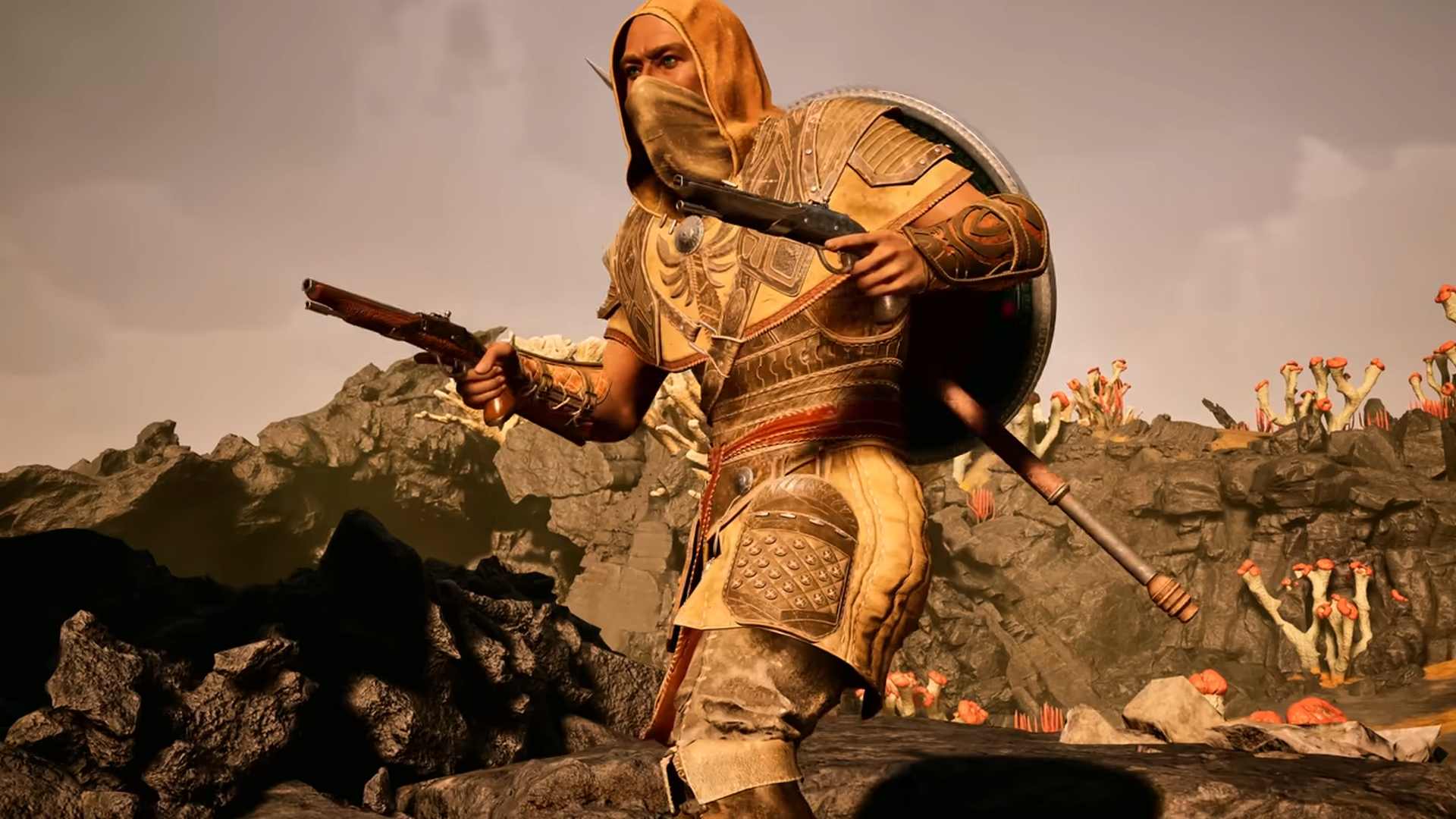

This results in an open and varied combat experience that puts you in charge of how you want to fight. But the freedom to choose isn't just put directly in your hands through the numerous weapons, it's also in how you decide to approach each battle. What I enjoyed the most about my hands-on time with Avowed was determining how I wanted to tackle every encounter by interacting with the environment around me. From opting to be stealthy and make use of tall grass to camouflage myself from nearby enemies, to putting my grimoire fire spells to use to set off explosives with one well aimed blast, there are lots of opportunities there for you to make the most of.
While Avowed is more action-forward than the isometric setup of previous Pillars of Eternity adventures, Paramo and Matzenbacher speak on how every ability draws from the Pillars universe and the games that came before. But as a studio that's most known for its RPGs, the flexible combat system ultimately speaks to Obsidian's approach and the role-play experience the team is striving to deliver.
"Obsidian has such personality-driven games," Matzenbacher says. "Pillars [of Eternity] in particular is kind of grounded in history, and has some kind of realism to it. And then it has this high personality element. So a lot of the decision making [for the combat] is almost trying to kind of chase the personality to a degree. For a while in development, you are the sword player, right? You are the thing that you're wielding. And so then it's just trying to find those characters a little bit in that [the abilities]. So I think that that is where the kind of story and the tone of the world has kind of influenced the combat a lot."
3 hours in, here's the 10 things we love most about Avowed so far.

I started out writing for the games section of a student-run website as an undergrad, and continued to write about games in my free time during retail and temp jobs for a number of years. Eventually, I earned an MA in magazine journalism at Cardiff University, and soon after got my first official role in the industry as a content editor for Stuff magazine. After writing about all things tech and games-related, I then did a brief stint as a freelancer before I landed my role as a staff writer here at GamesRadar+. Now I get to write features, previews, and reviews, and when I'm not doing that, you can usually find me lost in any one of the Dragon Age or Mass Effect games, tucking into another delightful indie, or drinking far too much tea for my own good.


